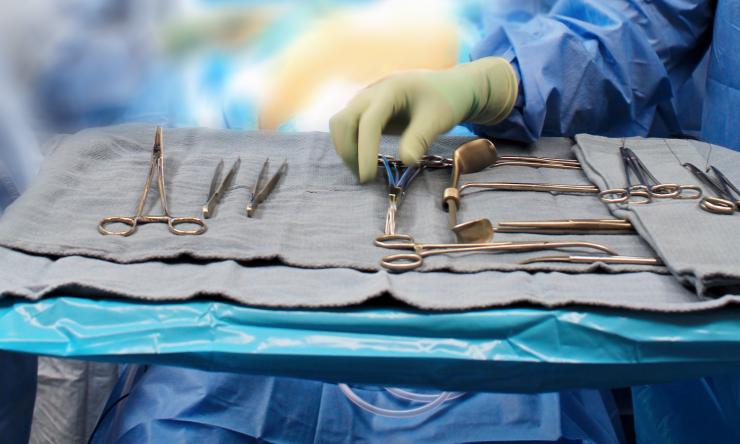Study identifies human errors associated with surgical errors
In the surgical setting, the concept “to err is human” could potentially be a matter of life and death. In an effort to identify surgical errors that could be prevented, researchers at ˛ÝÁńÉçÇřČëżÚ conducted a comprehensive analysis of surgeries that resulted in adverse events over a six-month period and found that more than half were caused by human performance deficiencies. Their report appears today in the journal .
“Human error is considered inevitable, so the focus on reducing bad outcomes in medicine has been to build systems to mitigate the risks of human error,” said Dr. Todd Rosengart, chair and professor of the Michael E. DeBakey Department of Surgery at Baylor and senior author of the paper. “There has been far less focus on teaching medical staff how to deal with their own human deficiencies or cognitive biases.”
At Baylor, as at many medical centers, surgery residents, fellows and faculty hold weekly conferences to review procedures that resulted in adverse events and identify what mistakes may have been made and what could have been done differently. Investigators in this study used this conference to conduct a case-by-case analysis in real time to analyze the human errors associated with adverse outcomes.
Researchers collected data from three adult teaching hospitals over six months, during which time more than 5,300 surgical operations were performed. Out of these procedures, adverse events occurred in 188 cases. Adverse events included death, major complications (infection, bleeding, neurological outcome) or non-routine events, such as hospital readmission. Of the 188 adverse event cases, human performance deficiencies were identified in 106, or more than 50 percent of cases.
“There are approximately 17 million surgical procedures performed in the United States each year. If the adverse outcome rate is about 5 percent and half of those are due to human error, as seen in our cohort and reported in other studies, it would mean that about 400,000 adverse outcomes could be prevented each year,” said Rosengart, who also serves as president of the Society of Surgical Chairs.
Consistent with these findings, Rosengart and his colleagues found no significant differences in adverse events between the three hospitals or between different surgical service lines in their study, suggesting their outcomes are not unique to one institution.
Researchers created a classification system in which they identified five categories of human performance deficiencies:
- Planning or problem solving
- Execution
- Rules violation
- Communication
- Teamwork
Within these categories, subcategories were identified to further interpret the most common types of errors that were occurring. The researchers found that more than half of the human performance deficiencies were cognitive errors, such as lack of attention, lack of recognition and cognitive bias.
“Errors related to communication, teamwork and system-based errors were much lower than expected,” said Dr. James Suliburk, associate professor of surgery at Baylor and first author of the paper. “This means our efforts to optimize communication, teamwork and system-related safety in our work culture have succeeded – the data suggests that further strategies for improvement of quality and safety based on system improvement may not solve the problem or be the greatest opportunity for improvement anymore.”
Rosengart suggests the answer may be in cognitive training of medical staff to recognize cognitive pitfalls.
“Instead of adding another checklist, we want to train people to be more in touch with their vulnerability to human performance deficiency,” he said. “We have to train people to listen to the voice in the back of their head.”
Surgeons and researchers at ˛ÝÁńÉçÇřČëżÚ plan to use the information collected in their study to create a simulation-training course focused on avoiding cognitive errors.
“We’re taking a completely different approach. Humans are imperfect, but we can make them a little bit more perfect than they are now. We’re not focusing exclusively on building more systems around humans, we’re going to focus on the humans,” Rosengart said.
Others involved in the study include Quentin M. Buck, Dr. Chris J. Pirko, Dr. Nader Masserweh, Dr. Neal Barshes and Dr. Hardeep Singh, all with ˛ÝÁńÉçÇřČëżÚ.
Rosengart also holds the DeBakey-Bard Chair in Surgery at ˛ÝÁńÉçÇřČëżÚ and operates at , Harris Health System’s and the . Suliburk operates at Baylor St. Luke’s Medical Center and Harris Health System’s Ben Taub Hospital.



 Credit
Credit